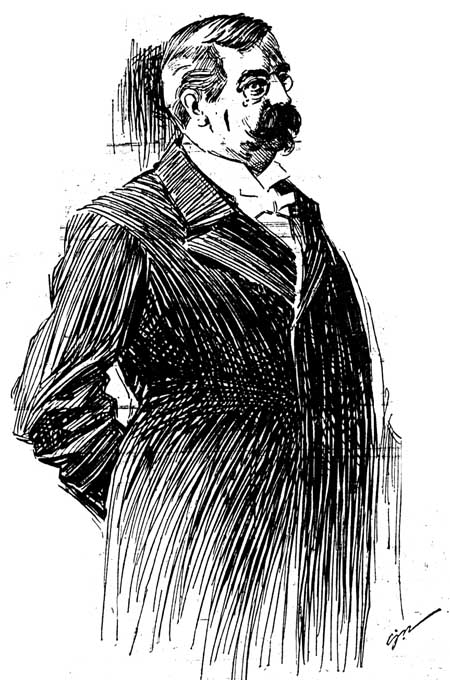
READ CHAPTER 1
GALLERY
WHO'S WHO
ATLAS
MYTHS DEBUNKED
FAMILY TREE
CONTACT THE AUTHOR
UPCOMING EVENTS
REVIEWS
CHICAGO HISTORY LINKS
READING SUGGESTIONS
BUY THIS BOOK
Richard Stanley Tuthill

Born: November 10, 1841, in Vergennes,
Illinois.
Family: Tuthill was the youngest of nine children. His father, David, had
studied to be an Episcopal clergyman, but had rather became the postmaster of
Vergennes. His hospitable mansion was where dignitaries such as President
Lincoln, Judge Breese, Bishop Chase, John A. Logan, D.L. Philips and others
stayed when they visited the town.
Military service: The Civil War broke out while he was studying at
Middlebury College in Vermont. Tuthill was in the Union's volunteer Army during the
Civil War, serving as a scout during a campaign through Mississippi to Meridian.
He went back to Vicksburg and was commissioned as a second lieutenant of Battery
H, 1st Michigan Light Artillery, under General Logan. He rose to the rank of
First Lieutenant. He fought in the following battles: Big Shanty, June 15, 1864;
Lost Mountain; Keneshaw; Nickajack Creek; Peach Tree Creek; Siege of Atlanta;
Jonesboro, Lovejoy Station; and Nashville. According to The Bench and Bar of
Chicago, Biographical Sketches (Chicago: American Biographical Publishing,
1890), "He had with commendable energy and foresight spent his leisure hours in camp
in the study of the law."
Political career: Tuthill was elected attorney general in Nashville. Left
office after three years in 1870, when Republicans fell out of favor in the
South. After moving to Chicago, he was elected city attorney in 1875 and 1877.
In 1884 he was appointed United States District Attorney for the Northern
District of Illinois, and served nearly three years. In 1887 he was elected
Judge of the Circuit Court of Cook County; he served on the bench until his
death, a period of thirty-three years.
Marriages: Tuthill married Jennie Smith in 1868 and had one child, and
then his wife died in 1872. He married Hattie McKey in 1877, and had four more children.
1897: Tuthill presides over the first trial of Adolph Luetgert on a
charge of murder.
1899: Tuthill is the first judge to preside over a juvenile court in
the United States. (See
details below.)
1916: In a civil lawsuit, Tuthill rules the Francis Bacon is the true
author of Shakespeare's plays.
Read more
about Tuthill's Shakespeare ruling.
August 1919: "Judge Tuthill was at the center of an unusual incident,"
the Daily News reported, "when he was rescued from drowning at the Main
street beach of Evanston by an unidentified girl. The judge had dived
from a platform into what he thought was shallow water, but which, instead, was
far beyond his depth, and in attempting to regain shore, he was exhausted. The
girl dragged him to safety and then disappeared."
Address in 1920: 1316 Lake Street, Evanston.
Died: April 10, 1920, in Evanston. "Death was due to a throat affection, and
followed an illness which had been more or less present since a surgical
operation performed last summer," the Daily News reported.
Children: An obituary identifies his children as: one son, Richard Stanley Tuthill Jr.; four daughters, Mrs.
Thomas H. Sidley, Mrs. J.M. Fiske of Milwaukee; Mrs. James A. Linen of Scranton,
Pennsylvania; Mrs. W.P. Dickerson of Cleveland. A descendent of Tuthill says his children were: "Lizzie," a daughter he had with his first wife, and six children that he had with his second wife, Harriet McKey: Zoe, Genevieve, Lillian, Harriet, Mary, and Stanley.
Social memberships: Thirty-second-degree Mason, member of the Oriental
Consistory and associate bodies, a Shriner of the Mystic Temple of Chicago, a
member of the Hamilton, Illinois, Church and University clubs, the Loyal Legion,
the G.A.R. Society of the Army of Tennessee and Memorial Hall Association.
Tuthill also founded the St. Charles Home for Boys.
 Search the Library of Congress Web site for Chicago Daily News photos of
Tuthill.
Search the Library of Congress Web site for Chicago Daily News photos of
Tuthill.
Tuthill in 1890
The Bench and Bar of Chicago book, published in 1890, stated:
Mr. Tuthill is in the prime of life, full of vigor and of unbounded energy; he is master of his profession, full of ambition, enthusiasm, and personal magnetism, and is richly endowed with those qualities which manifest themselves only through the medium of an ardent and exalted friendship. Honorable in all things, he is a sincere hater of shams in business, politics or religion, and in the practice of his profession scorns to resort to subterfuges, or to secure victory by questionable means.
Tuthill as Juvenile Court Judge
The Illinois General Assembly passes the Illinois Juvenile Court Act, created what is often called the nation's first court devoted specifically to juvenile cases, although a 1996 article by Sanford J. Fox in The Future of Children argued that it was more of an evolution than a novel concept. Tuthill serves as the first judge to preside over the juvenile court. Fox writes:
Examination of the practices adopted by the early juvenile court judges in Chicago suggests that they may have interpreted their mandate to act in a "summary manner" to require a reinstatement of the pre-1872 Illinois inquiry into character and fitness for rehabilitation. During the first year after the passage of the Illinois Juvenile Court Act, ... Tuthill sent 37 boys to the grand jury as not fit subjects for juvenile court treatment. More significantly, Judge Tuthill engaged in a kind of interpersonal exchange with the children who came before the court. The initial part of the hearing had little, if anything, to do with adjudicating the facts. Instead it was a game of gaining the trust of the child. Once the trust had been won, Judge Tuthill would ask the child directly about alleged offenses. Witnesses were seldom called into court.
Click here to read all of Sanford J. Fox's article.
Picture: Chicago Journal, Sept. 22, 1897.